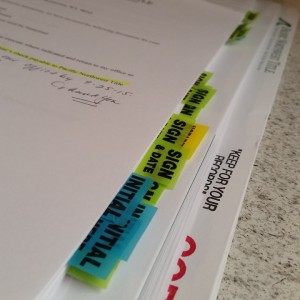How to Sell Your House
How to Sell Your House
How to Sell Your Home

Selling Port St Lucie Homes
When it comes to selling your home there are a multitude of issues to be mindful of in order to sell the property at the highest price and shortest time possible. Without a good planning the homeowners risk either leaving money on the table or wait for a long time to sell.
For Sale by Owner or Sale by Realtors®
Making the decision of selling by owner or hiring a Realtor® is perhaps the most important step in sale of any property. While homeowners may think that it’s all about the commission the issue is much broader than the money alone. The Realtors® are trained and experienced in many aspects of the sale of properties that homeowners may not be familiar with. The following is a brief list of what a Realtor® bring to the table and the homeowners could risk to lose many or face legal consequences if they’re not an expert in any of these fields:
-
Pricing a Home for Sale – The correct pricing of a home for sale is the first step in sale of any property. The homeowners should be aware of false prices floating around on different real estate related website. The algorithm of most such websites are not able to differentiate between a related and unrelated compatible sales. For example, the prices of the 3 homes sold in the same area does not necessarily portrays the average price to use for the sale of your home. This is because one of the homes could have a swimming pool while the other offers 2 extra bedrooms and the third home was built more recent than the other two. As a matter of fact, there has been lawsuits by homeowners against one of the most prominent real estate websites for miscalculating the home prices. The Realtors®, on the other hand, have access to many compatible home sales records and the knowledge of how to adjust the prices when the comps are not exact the same. According to the National Association of Realtors® report in 2016, the average home prices sold by For Sale By Owners was $185,000 while the average for homes sold with Realtors® assistance was $245,000 q whopping $60,000 difference. This is a little over 30% deficit which makes the average customary commission of 6% charged by real estate companies a true bargain. This is the main reason why some homeowners have claimed they have lost money due to the incorrect lower price estimate by the real estate websites.
-
Negotiating the Price – Like any other transactions, everything is negotiable when selling a home and the negotiation is not limited to the price of the property. There are items such as title insurance or repairs in the outcome of the inspection that can be negotiated to pay by either party to transaction. How to negotiate the price and when to stand firm or counter offer are crucial negotiation skills which may lack in the For Sale by Owner sales.
-
Inspection Problems – In most transaction the buyers will hire an inspection companies to make sure there are no hidden defects in the property. Some inspectors have the tendency of over-exaggerating the simple flaws in the house which may create panic by the home buyers. In one instance we had an inspection report indicating a cost of $760 for replacement of a sliding glass door which only needed couple of rollers at cost of less than $20. An experienced Realtor® is well versed in recognizing the bogus defects in inspector report from the serious ones. However, it is the Realtors® duty to skillfully negotiate the legitimate shortcomings in the inspection report in order to preserve the integrity of the transaction while minimizing the costs to the home sellers.
-
Appraisal Issues – Sometimes everything going smooth in a transaction until the appraised value falls short of the agreed upon contract price. The Appraisal issues generally arise from the appraised value falling below the contract price. There are few reasons for this:
-
Wrong List Price – Sometimes, the problem stem from the Realtors® knowingly price the listing much higher than the fair market value in order to please the sellers to list with them. Other times the incorrect pricing is done unknowingly by inexperienced or out-of-area Realtors®. Once the appraisal report is published it will be very difficult to convince any buyer to pay more than the appraised value and most importantly the lender will not grant a mortgage for more than what the appraiser has priced the property. Tin case of the cash deals, the more sophisticated buyers would order appraisal. In all real estate transactions, the sellers and their agents should discuss and have a plan B to face any appraisal shortfall.
-
Appraisal Miscalculations – At times the appraisal issues are due to the miscalculations by the appraiser. This could be due to many different circumstances:
-
Out of the Area Appraiser – Although appraisers are only depend on the latest compatible home sales in the area to correctly estimate the value of any property but the lack of knowledge the local real estate market and trends could create a problem. For example, during the crazy real estate market in the Broward County during the mid-2000s at some point the property values were rising on staggering rate of 10% a month. This created a problem when an out of area appraiser used the compatible sale from 3 months earlier without considering the market trend.
-
Lack of Compatible Sale – This is more true when it comes to sale of a property in a unique subdivision or gated community where there are not enough sales for the appraiser to locate compatible properties necessary to correctly estimate the value. Appraisers generally consider the sales of similar properties taking place in past 3 months, within the same community or one-mile radius as acceptable comps.
-
-
-
Communication with All Parties – In addition to the buyers and sellers there are many other people and companies involved in each real estate transaction. An experienced Realtor® shall always be in constant communication with all parties and report any and all issues to the sellers. The bank or mortgage companies, title company, appraisal, and inspection companies are few entities who are routinely involved in the outcome of all real estate transactions.
-
Closing on the Property – The Closing Disclosure will be send to both buyers and sellers by title company 48 hours prior to closing. Examine the Closing Disclosure thoroughly and don’t hesitate to ask questions and challenge any fluff charges. Please note, some of the expenses are non-negotiable, fixed line-items such as Doc-Stamp or pro-rated property taxes that are collected on behalf of the County or State of Florida.


 While most people may be aware of the of the $250,000 exclusions in capital gain taxes on the sale of homes, $500,000 if file joint returns, but there is more to this law than those two numbers. Knowing the qualifying factors and limitations of the law may become beneficial to homeowners planning to sell their homes.
While most people may be aware of the of the $250,000 exclusions in capital gain taxes on the sale of homes, $500,000 if file joint returns, but there is more to this law than those two numbers. Knowing the qualifying factors and limitations of the law may become beneficial to homeowners planning to sell their homes.
 Homeowners Insurance in Florida
Homeowners Insurance in Florida Saving Homes from Foreclosure
Saving Homes from Foreclosure